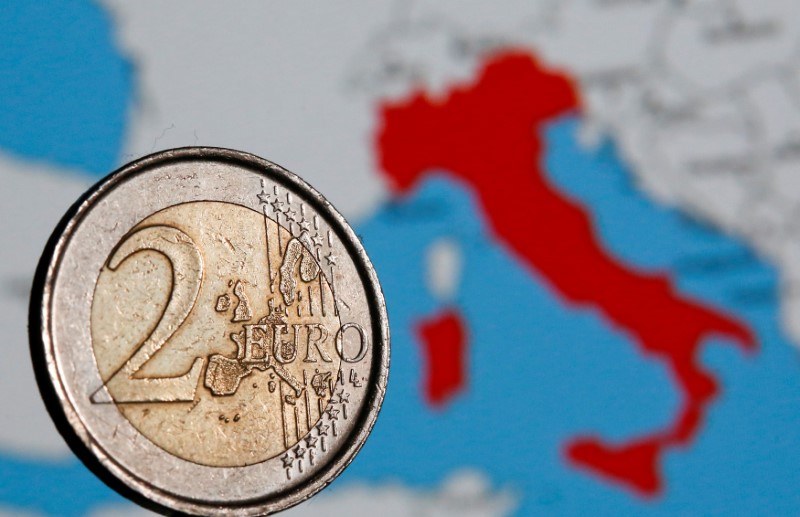By Giuseppe Fonte and Gavin Jones
ROME (Reuters) - Italy is strongly committed to issuing its first dollar bond since 2010 before the end of this year and is also eyeing private placements in other currencies, the head of the Treasury's debt management office told Reuters.
Davide Iacovoni said the long-touted dollar bond had been held up by procedural red-tape involving the U.S. Securities and Exchange Commission, but the Treasury was "working very intensely" and the issue was now "in the home straight".
"We continue to have extremely favorable feedback from the market and the commitment is absolutely confirmed" (to do it this year), he said in an interview in his office at the Treasury in central Rome.
He said the Treasury had also received expressions of interest from the market for debt in other currencies such as yen, and these would probably be satisfied through private placements, though not necessarily this year.
Total medium and long-term issuance this year will amount to some 240 billion euros, Iacovoni said, about 7 billion euros less than was targeted at the start of the year. About 62% of the total has already been sold.
Including Treasury bills, total issuance would be some 400 billion euros ($448.84 billion).
Italian bond yields fell this month to their lowest since 2016, thanks to a deal with the European Commission which averted a clash over Rome's public finances, and to expectations the European Central Bank will retain its ultra-dovish stance under its incoming president, Christine Lagarde.
If rates remain at their current levels, debt servicing costs in 2020 will be "around 3 billion euros" below what was targeted in the Treasury's most recent planning document in April, Iacovoni said, while savings this year will only be marginal.
So far this year demand for Italian debt had increased from continental Europe and Britain, and declined from the United States and Asia, he said.
Overall, he said the proportion of debt in foreign hands had decreased by "a few percentage points" in the second half of 2018 when political tensions with Brussels and within the ruling coalition were high.
However, he expected this trend to be reversed in the second half of this year, "largely cancelling out" the fall in foreign ownership.
"There is enormous interest among a base of foreign investors who see that we offer yields and liquidity that makes Italian paper particularly attractive," he said.
"MINI-BOTS" NOT ON TABLE
The average life of the country's debt will be about 6.8 years at the end of this year, Iacovoni said, roughly the same or slightly longer than at the end of 2018.
He said the Treasury was fully committed to selling a BTP-Italia retail bond before the end of the year, despite having avoided the usual spring issuance due to fears of weak demand.
Iacovoni said the decision not to offer the bonds in the spring was mainly due to scarce appetite for inflation-linked paper because of low inflation.
"I confirm there will be a BTP Italia issue this year, and we are also looking at complementary instruments aimed at the retail sector," he said.
Iacovoni also said the Treasury was in contact with several banks to increase its base of primary dealers, which currently amounts to 17 banks.
Turning to a sensitive political matter, Iacovoni said investors had been upset by a proposal by the ruling League party to issue small denomination bonds to help pay state debts owed to companies.
Economy Minister Giovanni Tria has come out against the proposal, but the League's economics chief Claudio Borghi continues to insist it is on the government's agenda.
Critics of the so-called "mini-BOT" scheme, named after Italy's Treasury bills, say it would be a form of parallel currency that could pave the way for an exit from the euro zone.
"It hasn't helped our (debt management) job because it created uncertainty, but now the markets have understood the Treasury has no plans for such a scheme," Iacovoni said.
